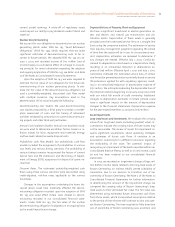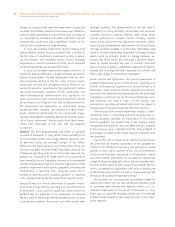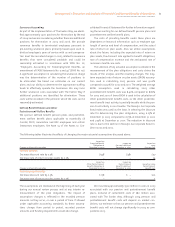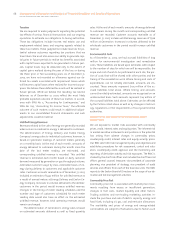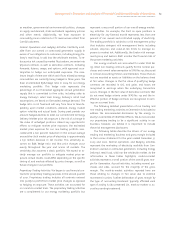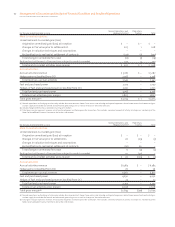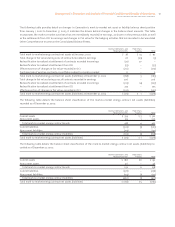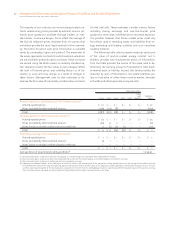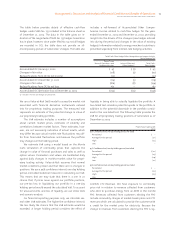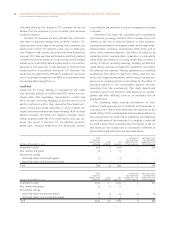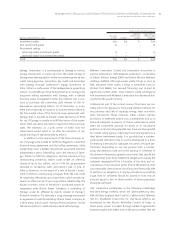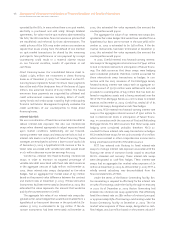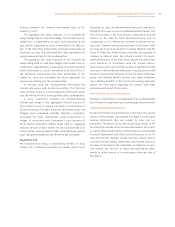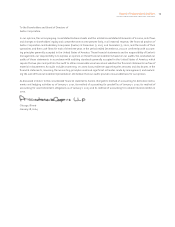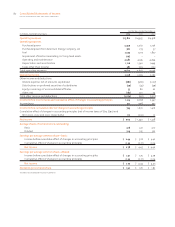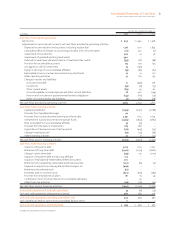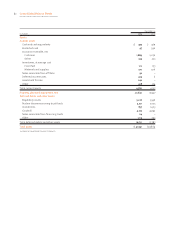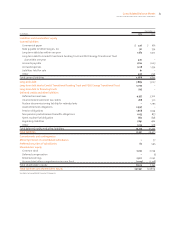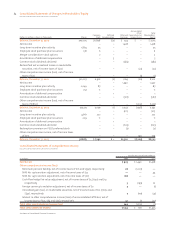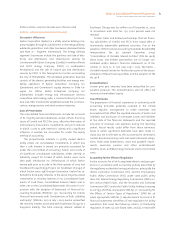ComEd 2003 Annual Report Download - page 77
Download and view the complete annual report
Please find page 77 of the 2003 ComEd annual report below. You can navigate through the pages in the report by either clicking on the pages listed below, or by using the keyword search tool below to find specific information within the annual report.
75Management’s Discussion and Analysis of Financial Condition and Results of Operations
EXELON CORPORATION AND SUBSIDIARY COMPANIES
Maturity of Credit Risk Exposure
Rating as of December 31, 2003
Less than
2 Years 2-5 Years
Exposure
Greater than
5 Years
Total Exposure
Before Credit
Collateral
Investment grade $101 $15 $– $116
Non-investment grade 22 – – 22
No external ratings
Internally rated–investment grade 13 – – 13
Internally rated–non-investment grade 1 – – 1
Total $137 $15 $– $152
Dynegy. Generation is a counterparty to Dynegy in various
energy transactions. In early July 2002, the credit ratings of
Dynegy were downgraded to below investment grade by two
credit rating agencies. Generation has credit risk associated
with Dynegy through Generation’s equity investment in
Sithe. Sithe is a 60% owner of the Independence generating
station, a 1,028-MW gas-fired facility that has an energy-only
long-term tolling agreement with Dynegy, with a related
financial swap arrangement. Sithe has entered into a con-
tract to purchase the remaining 40% interest of the In-
dependence generating station. As of December 31, 2003,
Sithe had recognized an asset on its balance sheet related to
the fair market value of the financial swap agreement with
Dynegy that is marked-to-market under the terms of SFAS
No. 133. If Dynegy is unable to fulfill the terms of this agree-
ment, Sithe would be required to impair this financial swap
asset. We estimate, as a 50% owner of Sithe, that the
impairment would result in an after-tax reduction of our
equity earnings of approximately $5 million.
In addition to the impairment of the financial swap as-
set, if Dynegy were unable to fulfill its obligations under the
financial swap agreement and the tolling agreement, Sithe
would likely incur a further impairment associated with the
Independence plant. Depending upon the timing of Dyne-
gy’s failure to fulfill its obligations and the outcome of any
restructuring initiatives, Exelon could realize an after-tax
charge of up to $30 million, net of a FIN No. 45 guarantee
recorded in connection with Generation’s sale of 50% of
Sithe to Reservoir. In the event of a sale of Exelon’s invest-
ment in Sithe to a third party, proceeds from the sale could
be negatively affected by up to $74 million, which would rep-
resent an after-tax loss of up to $43 million. Additionally, the
future economic value of AmerGen’s purchased power ar-
rangement with Illinois Power Company, a subsidiary of
Dynegy, could be affected by events related to Dynegy’s
financial condition. On February 3, 2004, Dynergy announced
an agreement to sell its subsidiary Illinois Power Company to
a third party, which, upon closing of the transaction, would
reduce Generation’s credit risk associated with Dynergy.
Midwest Generation. ComEd and Generation are parties to
various transactions with Midwest Generation, a subsidiary
of Edison Mission Energy (EME) and Edison Mission Midwest
Holdings (EMMH). Although earlier public filings in 2003 by
EME indicated credit issues, a filing in December 2003 in-
dicated that EMMH has secured financing and re-paid its
significant current debts. Thus, Exelon’s credit contingency
risk associated with Midwest Generation has decreased dur-
ing the fourth quarter of 2003.
Collateral. As part of the normal course of business, we rou-
tinely enter into physical or financially settled contracts for
the purchase and sale of capacity, energy, fuels and emis-
sions allowances. These contracts either contain express
provisions or otherwise permit our counterparties and us to
demand adequate assurance of future performance when
there are reasonable grounds for doing so. In accordance
with the contracts and applicable law, if we are downgraded
by a credit rating agency, especially if such downgrade is to a
level below investment grade, it is possible that a counter-
party would attempt to rely on such a downgrade as a basis
for making a demand for adequate assurance of future per-
formance. Depending on our net position with a counter-
party, the demand could be for the posting of collateral. In
the absence of expressly agreed to provisions that specify the
collateral that must be provided, the obligation to supply the
collateral requested will be a function of the facts and cir-
cumstances of our situation at the time of the demand. If we
can reasonably claim that we are willing and financially able
to perform our obligations, it may be possible to successfully
argue that no collateral should be posted or that only an
amount equal to two or three months of future payments
should be sufficient.
ISOs. Generation participates in the following established,
real-time energy markets, which are administered by ISOs:
PJM, ISO New England, New York ISO, California ISO, Midwest
ISO, Inc., Southwest Power Pool, Inc. and Texas, which is ad-
ministered by the Electric Reliability Council of Texas. In
these areas, power is traded through bilateral agreements
between buyers and sellers and on the spot markets that are


